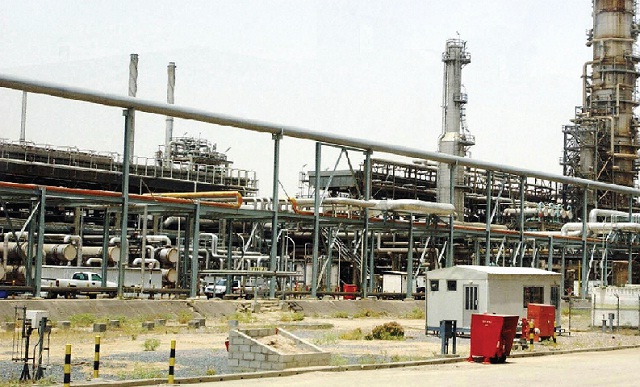
Agreement seen as a key step towards the construction of $4bn facility
Kampala, Uganda | RONALD MUSOKE | On April 10, Uganda moved closer to building a $4bn oil refinery in Hoima following the signing of an agreement between the government and a consortium of companies led by U.S giant, General Electric (GE).
The consortium, Albertine Graben Refinery Consortium (AGRC) is comprised of; YAATRA Africa (Mauritius), Lionworks Group Limited (Mauritius), Nuovo Pignone International SRL (a General Electric company domiciled in Italy) and SAIPEM SPA (Italy).
Uganda’s stake in the consortium will be carried by the government owned Uganda National Oil Company (UNOC).
President Yoweri Museveni said the agreement was a key step towards the construction of the oil refinery in Hoima “since it ensures development, design, financing, construction, operation and maintenance of the facility.”
On her part, Josephine Wapakhabulo, the Chief Executive Officer, UNOC, referred to the signing ceremony as a ‘game changer’ for the country and for UNOC.
Wapakhabulo who signed on behalf of Uganda said the development of the refinery would trigger a number of other investments in the energy-based industries and thus contribute to economic development of Uganda and would contribute to the achievement of Uganda’s middle-income status dream.
Eng. Irene Muloni, the Energy Minister said the signing ceremony marked the end of the selection process that commenced in January 2017. She said her ministry had done extensive consultations before arriving at whom to assign the project, estimated to cost between $3-4bn.
Once complete, the facility is expected to refine about 60,000 barrels of oil per day once production kicks off. Officials say most of the refinery’s products will be distributed in Uganda and the regional market. Some of these products are expected to include; kerosene, petrol, diesel, heavy fuel oils, among others.
The contract will include the construction of a 211km petroleum products pipeline from Hoima to Buloba which is located northwest of Kampala.
The private investors and the Uganda Refinery Holding Company, a subsidiary of the Uganda National Oil Company are to implement the project through a special purpose company.
The signing of this agreement brought an end to the government’s frantic search for a refinery investor that had lasted about five years.Despite some reservations from some independent experts concerning the viability of an oil refinery within landlocked Uganda, the government has remained adamant that a refinery would take first priority before commercialization of the country’s oil resources takes effect.
Major upstream companies operating in Uganda—Total, Tullow and CNOOC—had for a long time preferred a crude oil export pipeline because they felt exporting Uganda’s petroleum was more viable.
Later, the government reached a compromise with the private companies to construct both the pipeline and the refinery.
Part of the government’s resolve was anchored on a study by Swiss firm, Forster Wheeler, which concluded that an oil refinery made economic sense, especially from the perspective of creating spin-off industries.
That study gave the government the impetus to invite potential investors to bid and build the refinery near the shores of Lake Albert. Over the years, several investors have expressed interest in the project and competed for it.
In early 2015, a Russian consortium was selected by the government as the best preferred bidder while the South Korean consortium, SK Energy was put on standby as the alternative preferred bidder to build the refinery.
But as the finer details of the deal were scrutinized, both consortia baulked out of the project. The government started a fresh search and in 2016, the Energy Ministry announced that up to 40 companies had bid to build the refinery.
This number was whittled down to eight before the government cut the number into half. Government officials say, a further two later pulled out leaving the contest between AGRC and DongSong Energy Group.
 The Independent Uganda: You get the Truth we Pay the Price
The Independent Uganda: You get the Truth we Pay the Price



